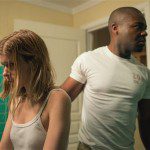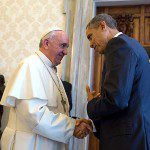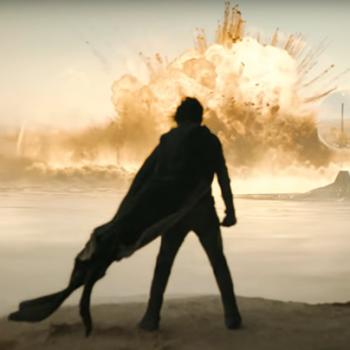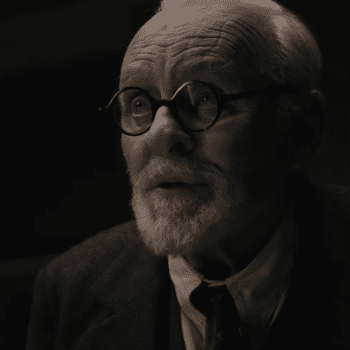
Way back in the Paleolithic 1980s, sage philosopher Mr. Spock told us that “The needs of the many outweigh the needs of the few.”
Sure, Spock recanted later, after Captain Kirk and his bevy of co-workers stole a starship to rescue him. But the core philosophy seems pretty logical, right? Lots of thinkers through the ages have thought so. It’s a central tenant to the philosophy of Utilitarianism. “The greatest happiness of the greatest number is the foundation of morals and legislation,” Jeremy Bentham, one of Utilitarianism’s great-granddaddys, once wrote. The scientific morality of Sam Harris, the celebrated atheist, has been compared to Utilitarianism a time or two.
And WCKD, the scientific body behind the events of The Maze Runner series, thinks this sort of pragmatic Utilitarianism makes sense, too.
Maze Runner: The Scorch Trials doesn’t exactly present WCKD in the best light. The mysterious organization, headed by scientist Ava Paige (Patricia Clarkson), strings up teens by the score and drains them of their blue fluid (whatever that is) until they’re just dried-out bits of teen jerky. It’ll do the same to our hero Thomas (Dylan O’Brien) and all his pals if it can catch them. Slap a black pointed hat on Ava, and you can easily picture her telling Thomas, “I’ll get you, my pretty—and your little Newt, too!”
But The Scorch Trials also shows us how Ava and the rest of WCKD got to this point.

The world of The Scorch Trials probably makes the Maze—from which Thomas and his friends escaped in the last movie—seems positively idyllic. The dystopian land looks like it’s been baking in a blast furnace for a few decades, and a terrible disease known as the Flare has turned many of its inhabitants into zombie-like creatures. They act in human, but it wasn’t always so. They were husbands, wives, children. The disease twisted their minds in such a way that some ripped out their own eyeballs to still the terrible visions. Now, it’s twisting their bodies, too.
There is but one hope: Some people are immune to the Flare, and the younger you are, the more likely you are to be immune. These lucky few may carry, it would seem, a solution—a solution that could save humanity.
“I swore an oath to find a cure, no matter the cost!” Ava tells Thomas. Yes, the cost has been high, she acknowledges. But given the stakes, the cost seems justifiable—at least from a Utilitarian point of view. The needs of the many outweigh the needs of the few. From that point of view, it seems almost selfish for Thomas and his few friends to stand in the way of WCKD’s scientific search for salvation. It seems immoral.
But Thomas’ sense of morality differs from WCKD’s. And his is, I think, a little more Christian.
It’s not like Thomas is averse to sacrifice: Over and over, he’s shown a willingness to risk his life for his friends. He’s no coward.
Bully for him, Ava might say. But are his friends really more important than all the thousands or millions of people he doesn’t know? People in desperate need of a cure?
But I think there’s more at work here. Yes, Thomas is trying to save a small collection of lives. But he’s also acknowledging something pretty important: That life itself is precious—priceless, in fact.
When we look at what Jesus did on the cross, I think it reflects more the morality of Thomas than of Ava. His crucifixion wasn’t the product of crunching the numbers. It was a product of love. He didn’t sacrifice himself primarily for generic humankind: He did it for you. And for me. He knows us, and He gave His life for us because each and every life is precious to Him.
And you know what? If just one of us was saved by His crucifixion, I think Jesus still would’ve done it.
Also important: Jesus chose his path. It was not chosen for him. By His own free will, Jesus sacrificed His mortal self. By his own free will, Thomas chooses to risk his. That’s what sacrifice is. What Ava and WCKD do is just plain killing.
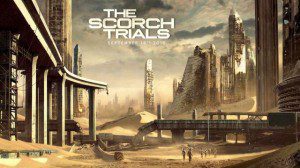 Good intentions or no, WCKD reduces human life to a commodity—to be harvested as society deems necessary. Our worth, WCKD suggests, is determined by supply and demand, and the demand in Scorch Trials is great indeed. But by his actions, Thomas suggests that our worth is set elsewhere. We have a divine right to choose how to live our lives—and we alone choose when to risk it.
Good intentions or no, WCKD reduces human life to a commodity—to be harvested as society deems necessary. Our worth, WCKD suggests, is determined by supply and demand, and the demand in Scorch Trials is great indeed. But by his actions, Thomas suggests that our worth is set elsewhere. We have a divine right to choose how to live our lives—and we alone choose when to risk it.
Our society operates a little like WCKD sometimes. Courts and insurance companies stick dollar figures on what a life is worth. Fetal tissue is harvested. Wars, and wartime decisions, are often based on grim Utilitarian calculus. In our fallen world, perhaps there’s no escaping the commoditization of life.
But The Scorch Trials does give us a reminder that we’re worth more than we’re sometimes told. And that we’re all worth saving.


